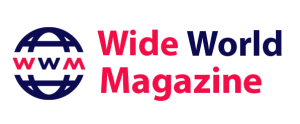Whether you are a student or a professional, there is a good chance you have come across many research projects. Research is an important part of both academic and professional life because it is essentially how you gather knowledge and accurate information about different topics that pique your interest.
If you are a marketing expert, you need to conduct research to find information about the latest marketing trends. If you are a business owner, you need knowledge about all the functions of your work to stay on top of things. You will need to perform extensive research about consumer behavior and market trends to sell your products. Research is therefore an important tool to master.
There are two broad methods for undertaking research: qualitative and quantitative. In this article, you will learn what these methods are, how they differ from each other, and when to apply them to your research project.
Qualitative and Quantitative Research: Key Differences
The basic difference the names above denote is that the first uses words to explain results, and the second uses numbers and statistics. Here are the differences in more detail.
Qualitative Research
- It is most commonly used in social science fields for a better understanding of how humans think, feel, and act.
- The approach is purely subjective to the researcher.
- It is an exploratory form of research, meaning the researcher explores or studies to find answers.
- It is an inductive form of arriving at conclusions; you move from specific points to more general points, which is why it can also be called ‘bottom-up reasoning’.
- Its main focus is studying different ideas to form hypotheses and theories.
- It features open-ended questions, meaning all the answers can potentially vary.
- This type of research can be performed using only a few participants.
- It requires a great deal of interpretation and summarising of findings.
- This methodology is rather unstructured, based mostly on interviews with open-ended questions, and group discussions.
To understand this a bit more, here is an example. If you want to understand why a particular television program is so popular among your peers, you can develop a series of open-ended questions to interview them. You can see the program is popular because you constantly hear praise about it, but you want more information before forming a hypothesis about the factors in its success, as well as answers about the subjective reasons for its popularity.
Quantitative Research
- It is most commonly used to come up with facts based on numerical data. Mathematical and statistical techniques are used here.
- The researcher’s approach is objective.
- It is a conclusive form of research, meaning the researcher arrives at a particular conclusion based on assumptions made.
- It is a deductive form of arriving at conclusions, where you move from general points to more specific ones.
- The main focus is on testing different hypotheses and theories.
- It features closed questions, meaning they only have a set of predetermined responses, or ‘yes/no’ answers.
- This type of research typically requires a lot of participants to gather sufficient data.
- It involves extensive analysis using various statistical and mathematical tools.
- Its methodology is highly structured based on closed questions, surveys, and observations.
Continuing using the example above, suppose you now want to see just how popular the programme is outside your chosen group of participants. You can develop a structured questionnaire, have people fill it out, and gather data. You can ask a variety of questions based on the qualitative research findings and assess the various hypotheses’ validity. You could print or forward about 300-400 copies of the questionnaire online for a decent population sample.
Many types of research involve the use of both the above techniques. However, the two can also be used exclusively. It all depends on the research project topic, goal, and scope.
Data Analysis
Once you have the data you need to move forward, there are many tools available to help analyze it. Popular qualitative research techniques include content analysis, discourse analysis, and thematic analysis. It is more challenging to arrive at conclusions for this type of research because there is no fixed answer. Some popular data analysis tools for quantitative research include Microsoft Excel, SPSS software, and the R programming language.
If you are a business professional seeking to improve your research skills, the best way to do so is to practice. There are many degree programs that offer research opportunities. Aston University enables you to study for a doctor of business administration online. Not only is online study convenient for those with busy schedules; the course also incorporates the learning needed to hone your research skills for complex problem-solving.
Conclusion
Hopefully, you now have a better understanding of what the two types of research are, how they differ from one another, and when they should be applied. Bear in mind that neither method is superior to the other; both are equally useful. Their use depends mainly on the researcher’s needs.
The difference between the two can be a bit confusing if you are new to the idea of research. In case you do not remember all the points above, just remember this: qualitative research is best used to understand a concept, and quantitative is best when you want to confirm or deny something.

